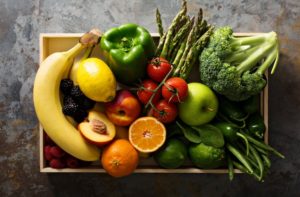
The latest research findings suggest that long-term consumption of fruits and vegetables and even orange juice may reduce memory loss. It’s important to note that the study focused on men, but as mentioned, it’s still important to consume fruits and vegetables regardless of your gender.
First author of the study Dr. Changzheng Yuan explained, “One of the most important factors in this study is that we were able to research and track such a large group of men over a 20-year period of time, allowing for very telling results.”
The study looked at 27,842 men with an average age of 51 who were all health professionals.
Participants filled out questionnaires regarding their fruit and vegetable consumption along with other foods that they ate during the study duration. A serving of fruit was considered one cup of fruit or half a cup of fruit juice. A serving of vegetables was one cup of raw vegetables or two cups of leafy greens.
Participants also underwent memory and thinking tests at least four years prior and post study.
Fifty-five percent of participants had good thinking and memory skills, 38 percent were moderate, and seven percent had poor memory and thinking skills.
The participants were then divided into five groups based on their fruit and vegetable consumption. The highest consumption group averaged six servings a day of vegetables and three servings of fruit. The lowest group only had about half of that.
Those in the highest consumption group were 34 percent less likely to develop memory problems. Of the high consumption group, 6.6 percent of men developed cognitive problems, compared to 7.9 percent of men in the low consumption group.
Men who drank orange juice daily were 47 percent less likely to develop poor thinking skills. Only 6.9 percent of men who drank orange juice daily developed thinking problems compared to 8.4 percent of men who drank it once a month.
The researchers concluded, “We also found that people who ate larger amounts of fruits and vegetables 20 years earlier were less likely to develop thinking and memory problems, whether or not they kept eating larger amounts of fruits and vegetables about six years before the memory test.”
It’s important to note that the study only looked at fruit and vegetable consumption, but generally, it has been noted that those who consume more fruits and vegetables tend to make other healthy diet and lifestyle choices which can influence memory and thinking abilities. The key is to maintain an overall healthy life with good lifestyle and diet habits. In the meantime, remember to always stock up on your fruits and veggies, just like your parents told you!
Also read:
- 10 everyday tips to boost your memory
- 25 Best foods to increase brainpower
- Easy tips to eat more fruits and vegetables